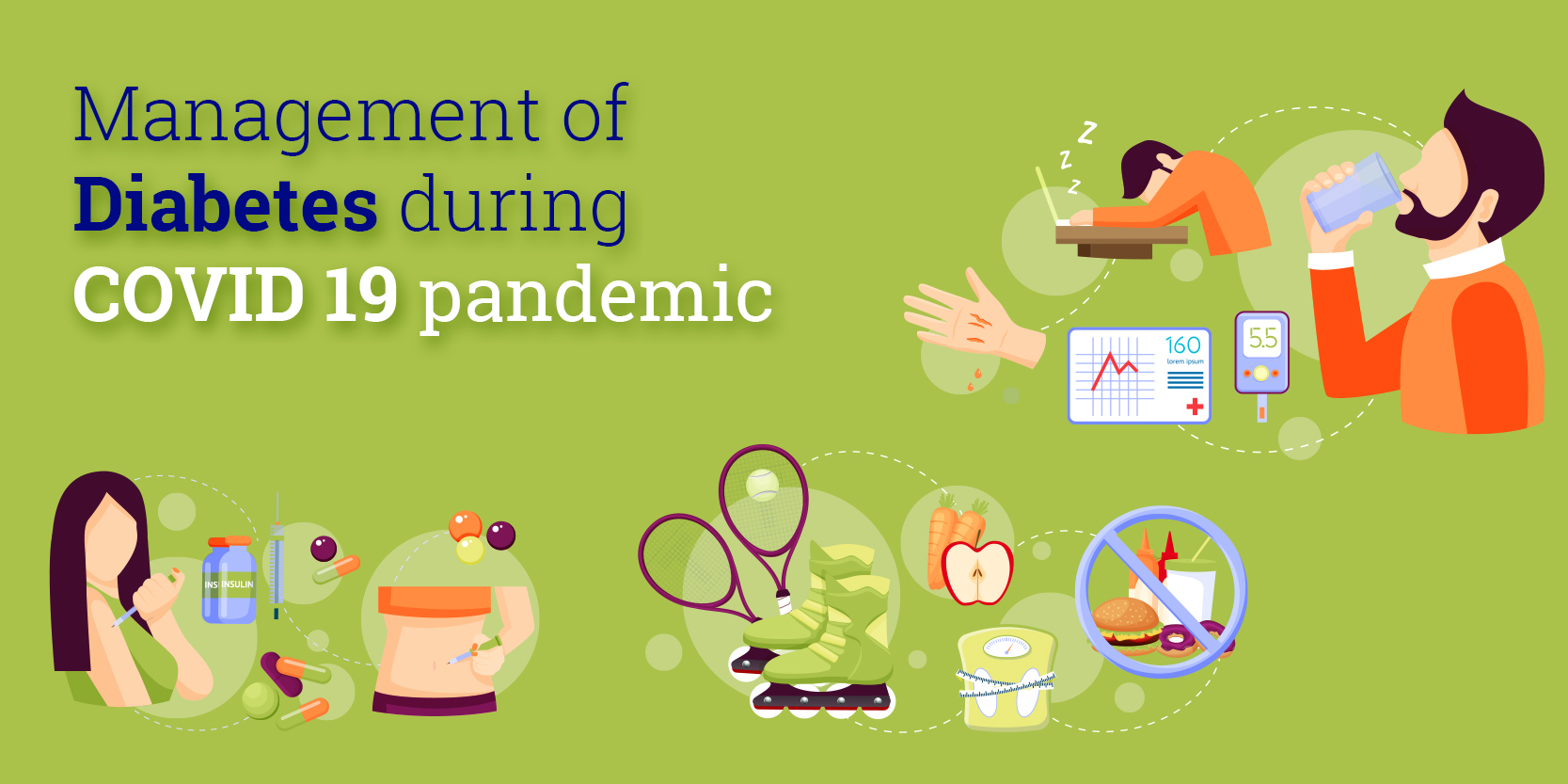COVID-19 pandemic has changed our lives and has had a huge health impact on a vulnerable population with comorbidities such as diabetes
The burden of diabetes in India
Diabetes Mellitus is a complex chronic metabolic disorder resulting in hyperglycemia affecting 7.3% of the Indians. This statistic represents the tip of the iceberg as the estimated prevalence of prediabetes is found to be 10.3% and undiagnosed cases of diabetes account for almost 45% of diabetics in India.
COVID-19 in Diabetes - A Matter Of concern…
Fluctuating glucose levels, impaired immune defence, and the presence of complications such as nerve damage or reduced blood flow, etc. in diabetics reduces the body’s ability to fight infection. If a diabetic patient gets a COVID infection, he has a higher likelihood of developing complications and dying as compared to a person who doesn’t have diabetes.
Tests for diabetes – who should get it done?
Almost half of adults suffering from diabetes don’t know that they have it. Therefore, regular screening of diabetes is recommended especially for [Table 1]
Table 1: Recommended screening in the population| People with | Frequency |
|---|---|
| Age ≥ 45 yrs | Every 3 yr |
| Body mass index > 25 (Overweight ) or sedentary lifestyle | Annually |
| History of hypertension, abnormal cholesterol, or heart disease | Annually |
| Woman with a history of gestational diabetes or polycystic ovarian syndrome | Every 3 yr |
| History of prediabetes | Annually |
Management of Diabetes
The chronic condition calls for constant management, and disciplined self-care to achieve tight sugar control and prevention of complications.
Blood sugar test for screening, diagnosis, and assessment of glucose control [Table 2 ].
Table 2: Sugar Levels chart [Source: American Diabetes Association]| Tests | Quantifies blood sugar | Normal | Diabetes | Well-controlled Diabetes Target |
|---|---|---|---|---|
| HbA1c | Levels over the past 2 or 3 months | < 5.7% | ≥6.5% | < 7% |
| Fasting blood glucose(mg/dl) | After an overnight fast | 70-100 | ≥ 126 | 80–130 |
| 1-2 hrs after a meal (mg/dl) | After consuming Glucose | < 140 | > 200 | < 180 |
Treatment
Medicines (Hypoglycemic drugs, Insulin, etc.) coupled with diet and lifestyle modification is a key to manage diabetes effectively.
-
Diet and Lifestyle
A healthy diet and exercise regime keeps the check on hyperglycemia and helps enhance immunity [Table 3]- Oxidative stress due to abnormal glucose metabolism can lead to a deficiency of Vitamin A, C, and K. Vitamin D deficiency is associated with the risk of developing Diabetes. Folic acid, vitamin B6, B12, thiamine, and Zinc are essential to prevent complications.
- It is advisable to supplement deficient nutrient through diet or take supplements under medical supervision as their deficiency makes one prone to get an infection
Table 3: Lifestyle intervention in DiabetesDos Don’ts Eat high fiber and low carbohydrate, low-fat diet Avoid refined, processed foods, sugary drinks Consume more fruit and vegetables Avoid Smoking Stay Hydrated: Drink water and organic green tea Limit alcohol consumption Exercise Regularly, practice, yoga, floor exercises, etc. Don’t over-exert yourself -
Regular doctor consultation:
- Continuous monitoring and regular testing help in managing medications, preventing hypoglycemia [glucose <70 mg/dL], adjusting diet, and exercise regimes.
- If a physical visit is not possible, the patient should use teleconsultation
-
Self-monitoring is indispensable during a pandemic
- Follow the regular schedule, avoid stress, sleep well,and keep blood pressure, body weight, and cholesterol levels under control.
- Point of Care testing [POCT] devices such as Glucometer help in the immediate assessment of safety and efficacy of treatment
If your blood sugar levels and HbA1c do not achieve target levels, talk to a doctor at DocOnline immediately for assistance. At DocOnline, you can get a high-quality medical consultation from our experienced doctors, order lab tests online and order medicines that can be delivered at your doorstep. You can also keep a track of your vitals, take a health risk assessment and store your medical records in the app













